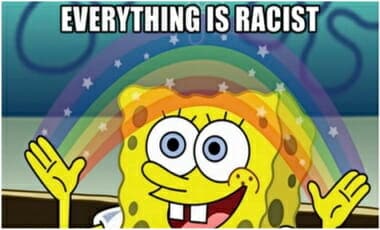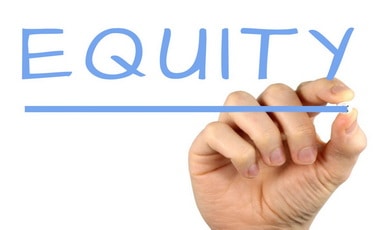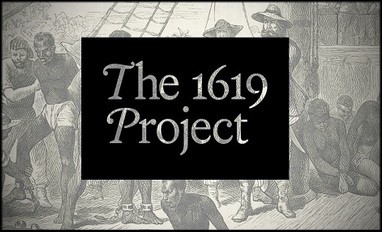One might say that the politician, the doctor, and the dramatist make their living from human misery; the doctor in attempting to alleviate it, the politician to capitalize on it, and the dramatist, to describe it.
But perhaps that is too epigrammatic.
When I was young, there was a period in American drama in which the writers strove to free themselves of the question of character.
Protagonists of their worthy plays had made no choices, but were afflicted by a condition not of their making; and this condition, homosexuality, illness, being a woman, etc., was the center of the play. As these protagonists had made no choices, they were in a state of innocence. They had not acted, so they could not have sinned.
A play is basically an exercise in the raising, lowering, and altering of expectations (such known, collectively, as the Plot); but these plays dealt not with expectations (how could they, for the state of the protagonist was not going to change?) but with sympathy.
What these audiences were witnessing was not a drama, but a troublesome human condition displayed as an attraction. This was, formerly, known as a freak show.
The subjects of these dramas were bearing burdens not of their choosing, as do we all. But misfortune, in life, we know, deserves forbearance on the part of the unafflicted. For though the display of courage in the face of adversity is worthy of all respect, the display of that respect by the unaffected is presumptuous and patronizing.
One does not gain merit from congratulating an afflicted person for his courage. One only gains entertainment.
Further, endorsement of the courage of the affliction play’s hero was not merely impertinent, but, more basically, spurious, as applause was vouchsafed not to a worthy stoic, but to an actor portraying him.
These plays were an (unfortunate) by-product of the contemporary love-of-the-victim. For a victim, as above, is pure, and cannot have sinned; and one, by endorsing him, may perhaps gain, by magic, part of his incontrovertible status.
[…..]
There is a Liberal sentiment that it should also punish those who take more than their “fair share.” But what is their fair share? (Shakespeare suggests that each should be treated not according to his deserts, but according to God’s mercy, or none of us would escape whipping.)
The concept of Fairness, for all its attractiveness to sentiment, is a dangerous one (cf. quota hiring and enrollment, and talk of “reparations”). Deviations from the Law, which is to say the Constitution, to accommodate specifically alleged identity-group injustices will all inevitably be expanded, universalized, and exploited until there remains no law, but only constant petition of Government.
We cannot live in peace without Law. And though law cannot be perfect, it may be just if it is written in ignorance of the identity of the claimants and applied equally to all. Then it is a possession not only of the claimants but of the society, which may now base its actions upon a reasonable assumption of the law’s treatment.
But “fairness” is not only a nonlegal but an antilegal process, for it deals not with universally applicable principles and strictures, but with specific cases, responding to the perceived or proclaimed needs of individual claimants, and their desire for extralegal preference. And it could be said to substitute fairness (a determination which must always be subjective) for justice (the application of the legislated will of the electorate), is to enshrine greed—the greed, in this case, not for wealth, but for preference. The socialistic spirit of the Left indicts ambition and the pursuit of wealth as Greed, and appeals, supposedly on behalf of “the people,” to the State for “fairness.”….
….But such fairness can only be the non-Constitutional intervention of the State in the legal, Constitutional process—awarding, as it sees fit, money (reparations), preferment (affirmative action), or entertainment (confiscation)….
….“Don’t you care?” is the admonition implicit in the very visage of the Liberals of my acquaintance on their understanding that I have embraced Conservatism. But the Talmud understood of old that good intentions can lead to evil—vide Busing, Urban Renewal, Affirmative Action, Welfare, et cetera, to name the more immediately apparent, and not to mention the, literally, tens of thousands of Federal and State statutes limiting freedom of trade, which is to say, of the right of the individual to make a living, and, so earn that wealth which would, in its necessary expenditure, allow him to provide a living to others….
…. I recognized that though, as a lifelong Liberal, I endorsed and paid lip service to “social justice,” which is to say, to equality of result, I actually based the important decisions of my life—those in which I was personally going to be affected by the outcome—upon the principle of equality of opportunity; and, further, that so did everyone I knew. Many, I saw, were prepared to pay more taxes, as a form of Charity, which is to say, to hand off to the Government the choice of programs and recipients of their hard-earned money, but no one was prepared to be on the short end of the failed Government pro-grams, however well-intentioned. (For example—one might endorse a program giving to minorities preference in award of government contracts; but, as a business owner, one would fight to get the best possible job under the best possible terms regardless of such a program, and would, in fact, work by all legal and, perhaps by semi- or illegal means to subvert any program that enforced upon the pro-prietor a bad business decision.)*
Further, one, in paying the government to relieve him of a feeling of social responsibility, might not be bothered to question what in fact constituted a minority, and whether, in fact, such minority contracts were actually benefiting the minority so enshrined, or were being subverted to shell corporations and straw men. †
PAGE-NOTE FROM PAGE 154
*No one would say of a firefighter, hired under rules reducing the height requirement, and thus unable to carry one’s child to safety, “Nonetheless, I am glad I voted for that ‘more fair’ law.”
† As, indeed, they are, or, in the best case, to those among the applicants claiming eligibility most capable of framing, supporting, or bribing their claims to the front of the line. All claims cannot be met. The politicians and bureaucrats discriminating between claims will necessarily favor those redounding to their individual or party benefit—so the eternal problem of “Fairness,” supposedly solved by Government distribution of funds, becomes, yet again and inevitably, a question of graft.
David Mamet, The Secret Knowledge: On the Dismantling of American Culture (New York, NY: Sentinel Publishing, 2011), 134-135; 116-117, 122, 151, 154.





























